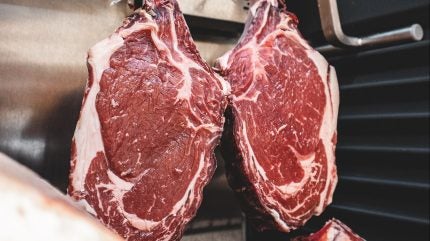
Europe’s food safety body has warned nitrosamine organic compounds pose a health risk to humans and plans to work with the bloc’s legislator on a solution.
An assessment by the European Food Safety Authority (EFSA) identified ten nitrosamines found in food that are carcinogenic and genotoxic, meaning they can potentially cause cancer and damage DNA, respectively.

Discover B2B Marketing That Performs
Combine business intelligence and editorial excellence to reach engaged professionals across 36 leading media platforms.
The EFSA said the compounds can be formed during the preparation and processing of food, with meat and related products the most exposed to nitrosamines. They were also found in processed fish, processed vegetables, cereals, milk and dairy products. Fermented, pickled and spiced foods, along with cocoa, beer and other alcoholic drinks were also identified.
“EFSA’s opinion will be shared with the European Commission, which will discuss with national authorities what risk management measures are needed,” it said in a statement dated 28 March.
Approached by Just Food for a reaction to the findings, FoodDrinkEurope, an industry representative for manufacturers, said via a spokesperson: “The safety of consumers and of our products is of the utmost importance for the food industry. The European food and drink industry complies with the European legislation and will act in accordance with any further risk management decision following this opinion.”
Chris Elliott, a professor of food safety at Queen’s University Belfast, took to Twitter to repeat his call for a ban on nitrosamines.

US Tariffs are shifting - will you react or anticipate?
Don’t let policy changes catch you off guard. Stay proactive with real-time data and expert analysis.
By GlobalDataDr. Dieter Schrenk, a professor at the Technical University of Kaiserslautern in Germany and chair of the EFSA’s Panel on Contaminants in the Food Chain, concluded the risks from nitrosamines applies to all age groups.
He said: “Based on animal studies, we considered the incidence of liver tumours in rodents as the most critical health effect. To ensure a high level of consumer protection, we created a worst-case scenario for our risk assessment. We assumed that all nitrosamines found in food had the same potential to cause cancer in humans as the most harmful nitrosamine, although that is unlikely.”
However, the EFSA acknowledged there are “knowledge gaps” around the presence of the compounds in certain foods.





